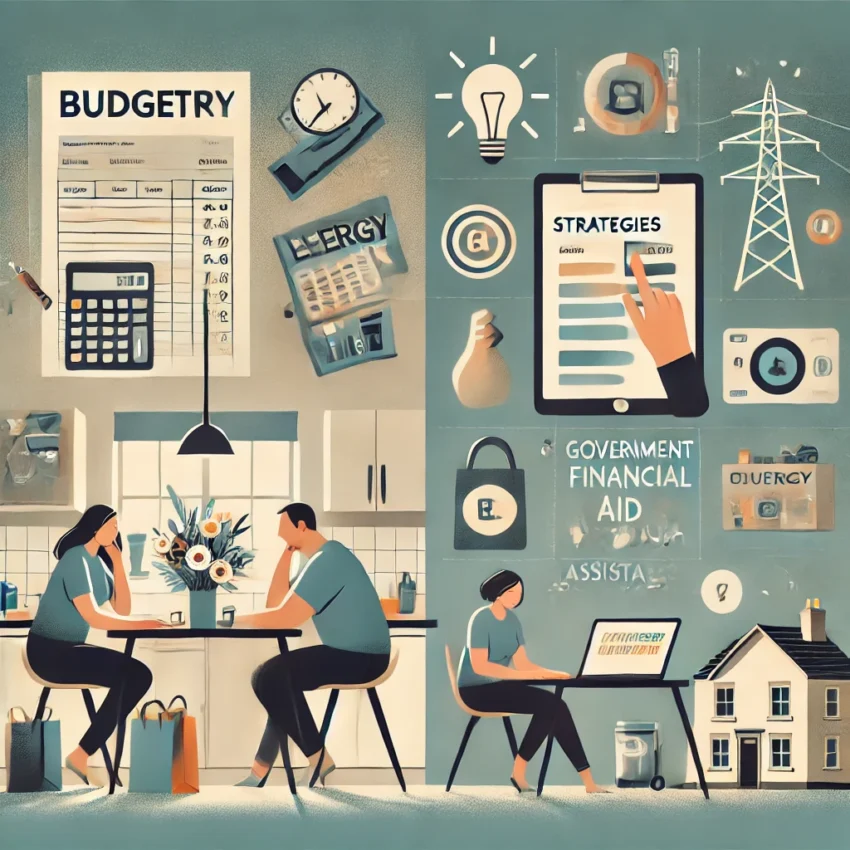Living costs in the UK have risen significantly due to high inflation, energy price surges, and climbing private rents, leaving many households struggling. This guide explores what’s driving these changes and offers practical advice to help you manage and access support.
What Causes Higher Living Costs?
The rise in living costs stems from a combination of global and domestic factors. Inflation peaked at 11% in late 2022, driven by soaring energy prices, disrupted supply chains, and workforce shortages. Although inflation has since dropped to the Bank of England’s 2% target, the higher prices remain, keeping essential goods and services costly.
How to Cope with Rising Costs
1. Review Your Finances:
Start by creating a budget to track your income and expenses. Identify areas to cut unnecessary spending, such as unused subscriptions or expensive policies, and negotiate for better rates on essentials like utilities or broadband.
2. Smart Debt Management:
Prioritize paying off debts with the highest interest rates to reduce overall costs. Consider consolidating debts or transferring credit card balances to a 0% interest card to ease repayment burdens. Always ensure minimum payments are met to avoid penalties.
3. Maximize Your Benefits:
Many households miss out on unclaimed benefits. Check if you qualify for government aid, like council tax discounts or childcare support, using online benefits calculators.
4. Cut Energy Costs:
Energy efficiency measures like insulating your home, sealing drafts, and washing clothes at lower temperatures can reduce bills. Explore switching energy suppliers for potentially lower rates.
5. Save on Food Bills:
Meal planning, bulk buying, and avoiding waste can help stretch your grocery budget. Use price comparison tools to find discounts and shop at lower-cost supermarkets.
6. Lower Fuel Expenses:
Maintaining proper tire pressure, driving lighter vehicles, and adopting fuel-efficient driving habits, such as gradual acceleration and timely gear changes, can help you save money on fuel.
What Help Can You Get?
- Help with Debts:
If you’re struggling with debt, prioritize essential payments like rent or mortgage to avoid severe consequences. Contact creditors to arrange manageable repayment plans or seek advice from debt charities like StepChange or Citizens Advice.
- Support for Rent Payments:
Communicate early with landlords about payment difficulties. They may agree to new terms or partial payments. Shelter and Housing Rights offer guidance on handling arrears and understanding tenant rights.
- Assistance with Energy Bills:
Contact your energy supplier for payment plans if you’re behind on bills. Local councils may also offer grants or vouchers to cover immediate needs.
- Food Assistance:
Local food banks provide food and household essentials to those in need. Referrals are required and can be obtained from professionals like GPs, social workers, or Citizens Advice.
- Government Support
The UK government has introduced targeted payments to ease the financial strain on vulnerable households, including:
- Disability cost-of-living payments
- Means-tested benefits for low-income households
- Winter Fuel Payment for older adults
For details on eligibility and applications, visit GOV.UK’s Help for Households page.
Conclusion
High living costs are a challenging reality, but by taking proactive steps, accessing available support, and adopting smarter financial habits, you can navigate these difficult times. Don’t hesitate to seek assistance—help is available to ensure your basic needs are met.

